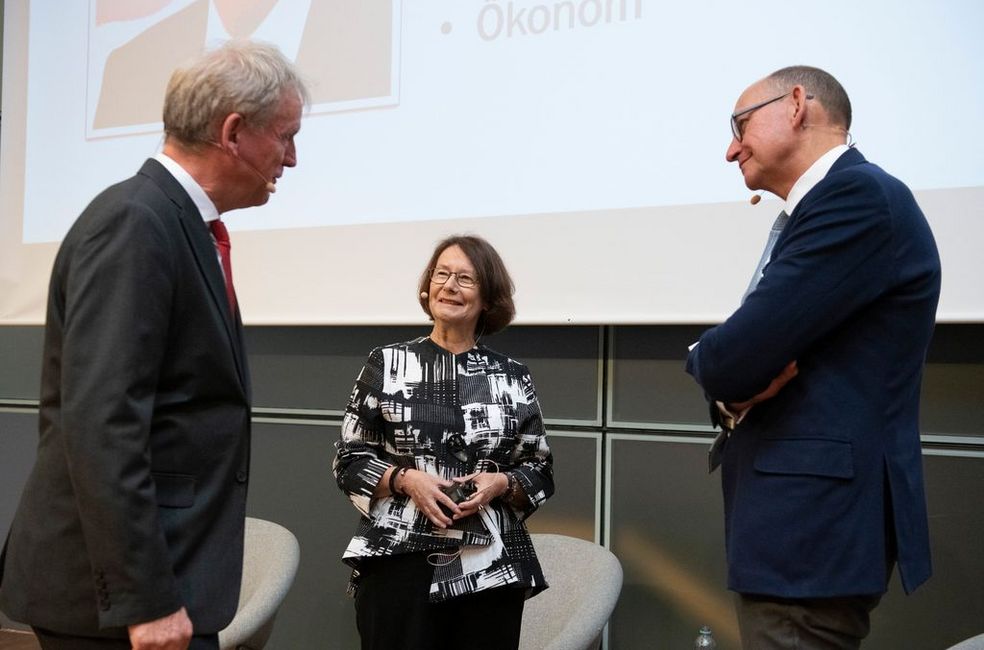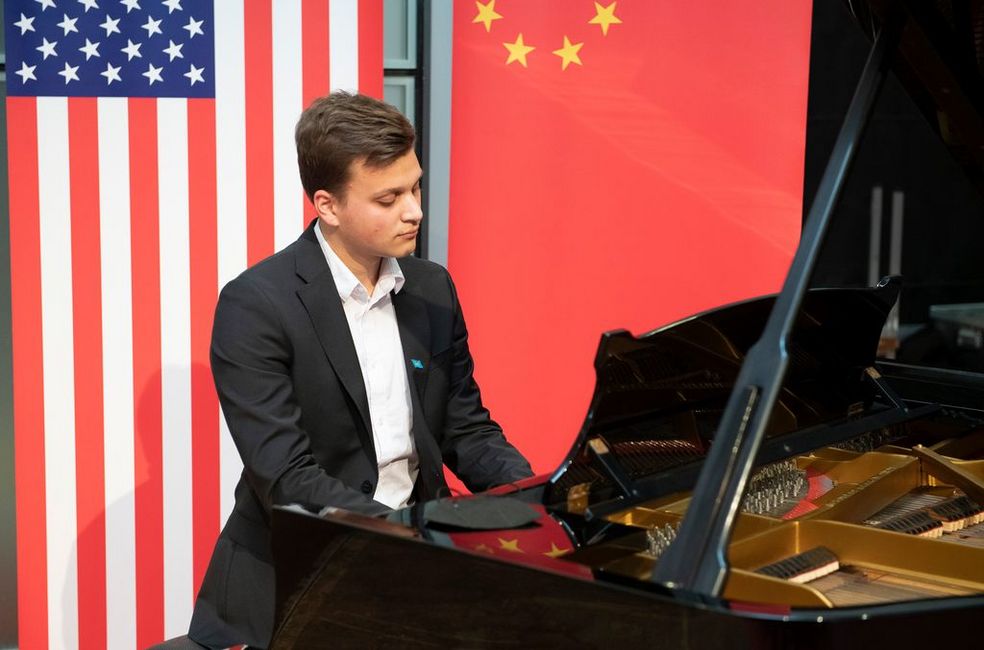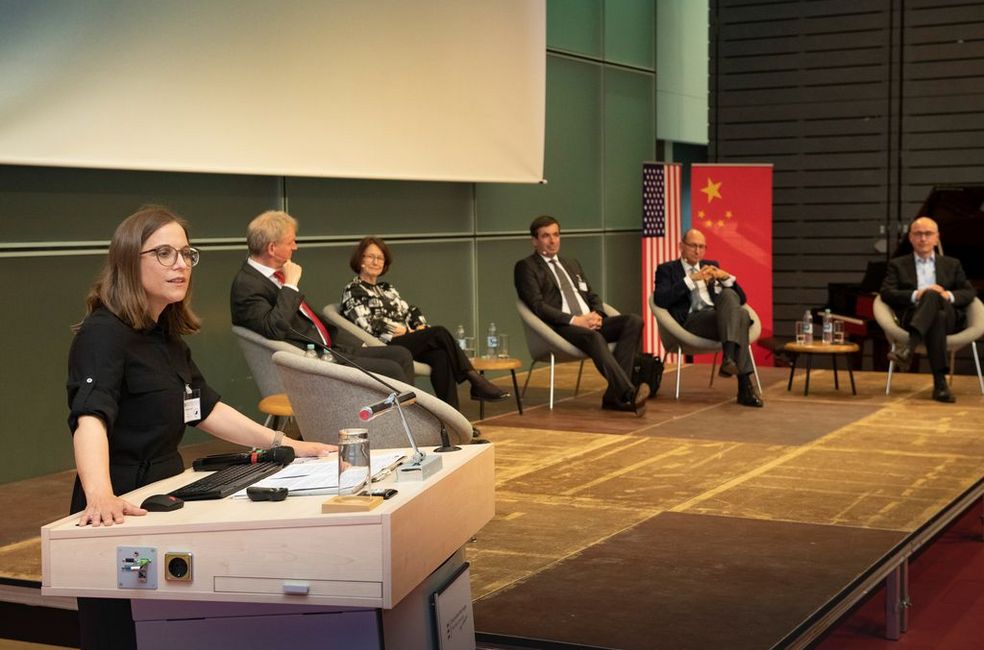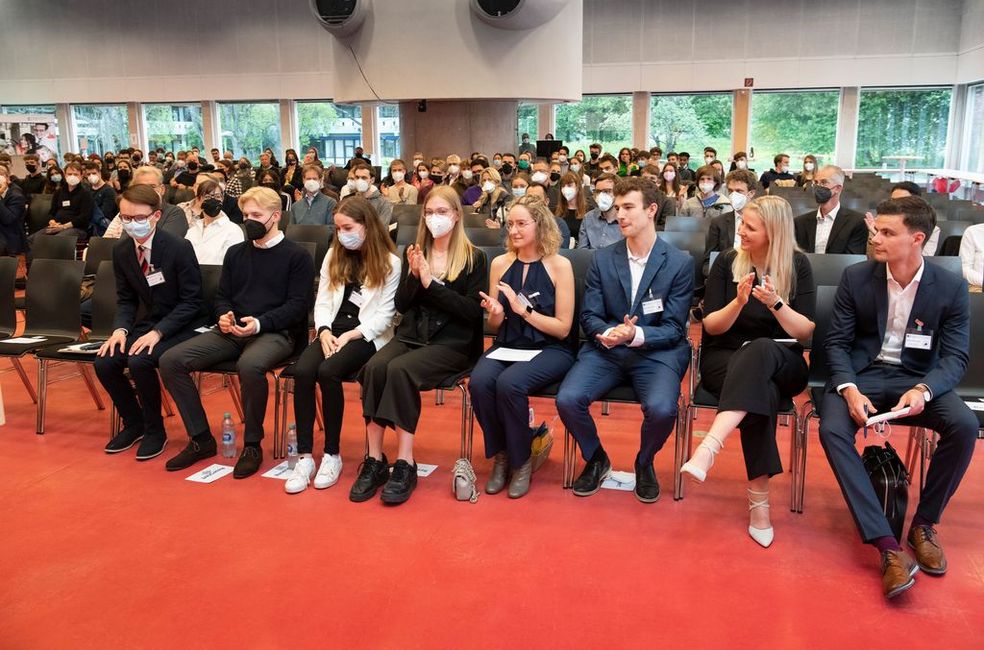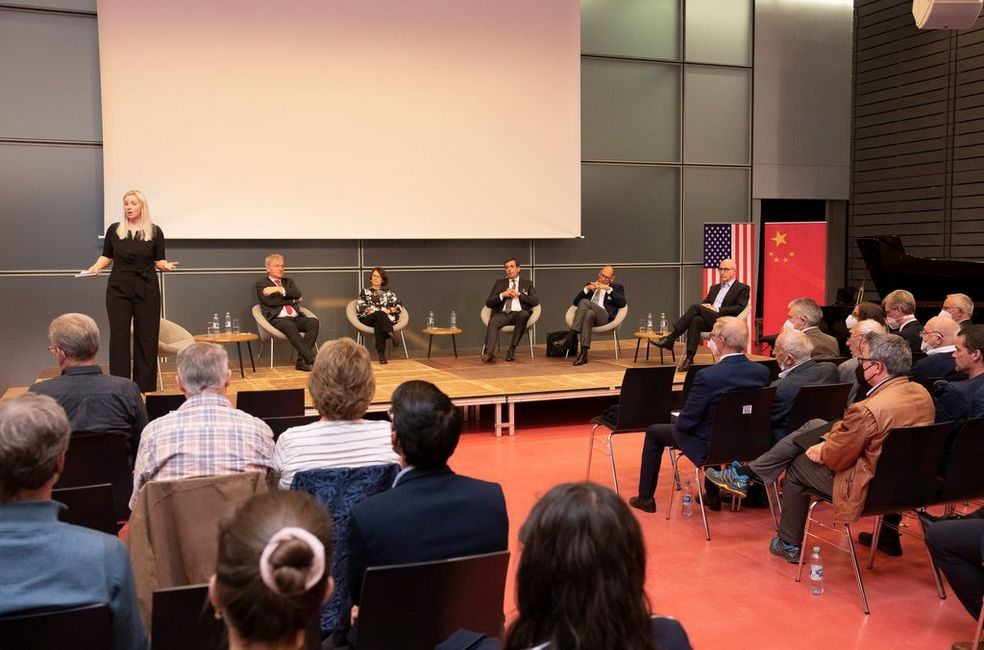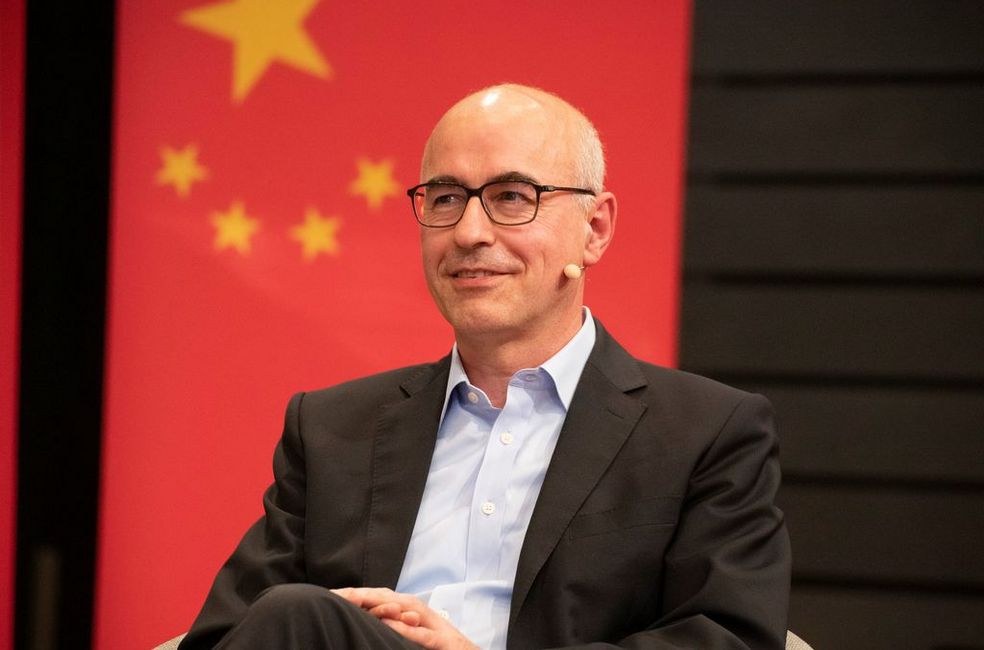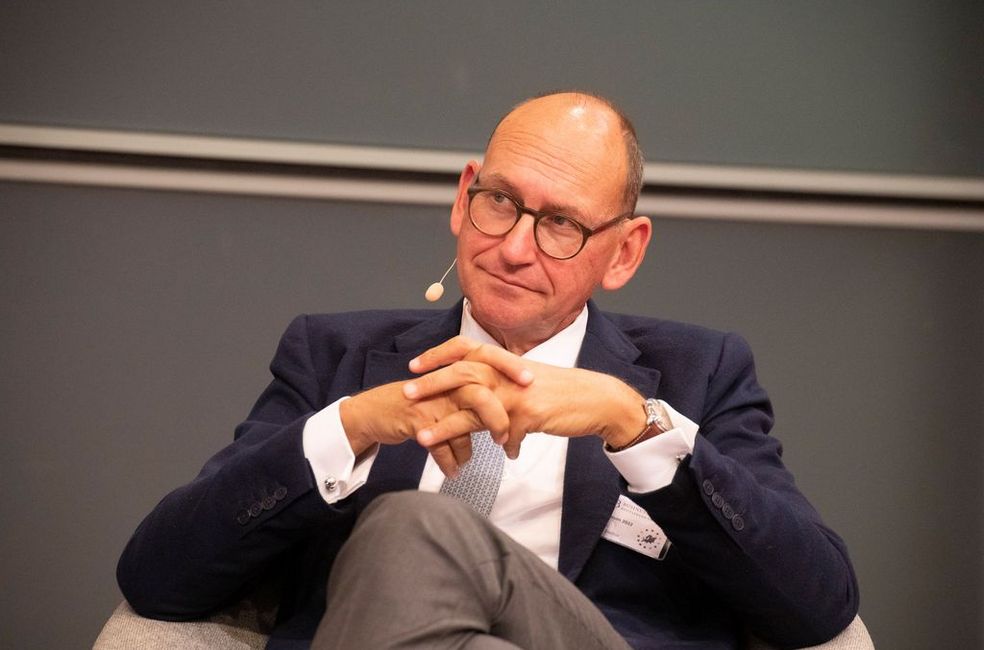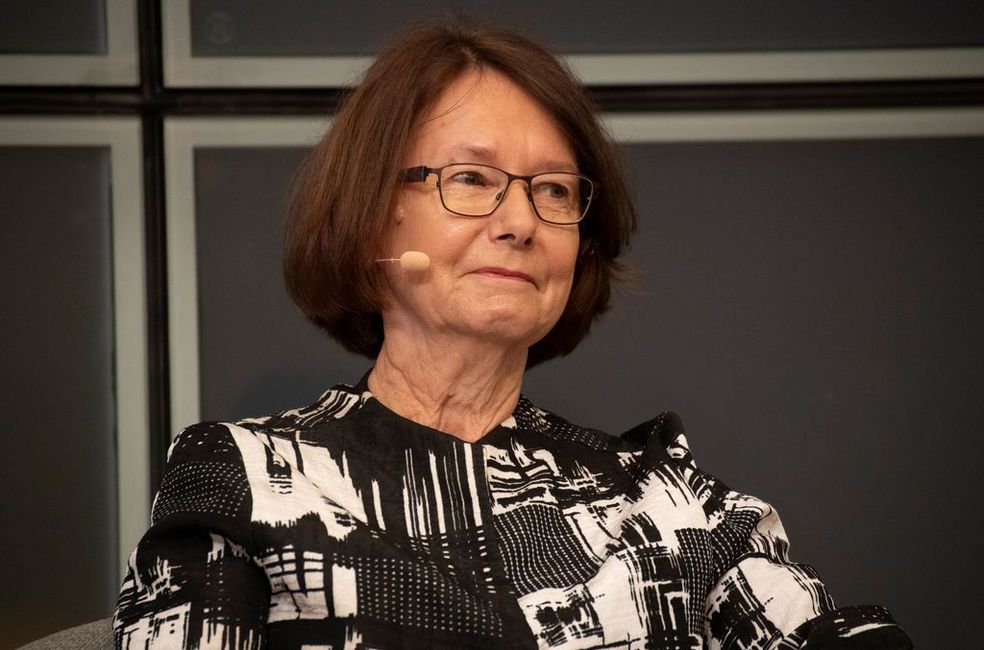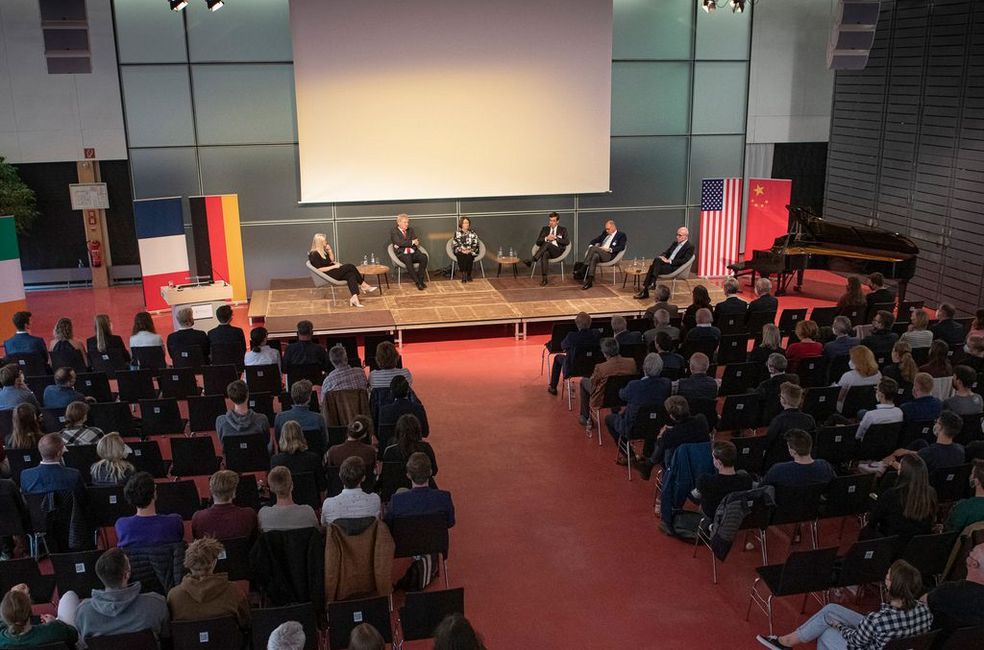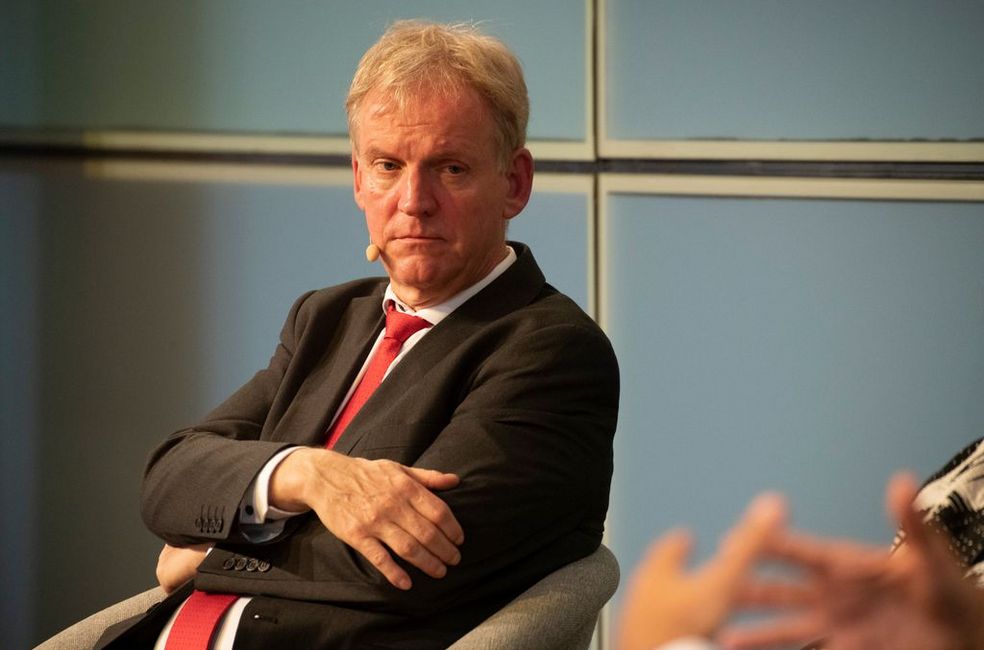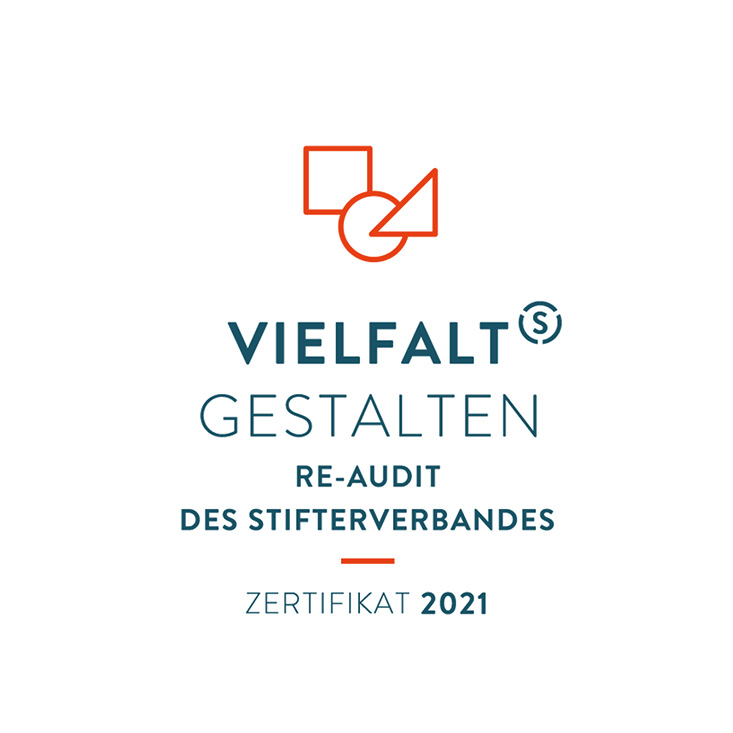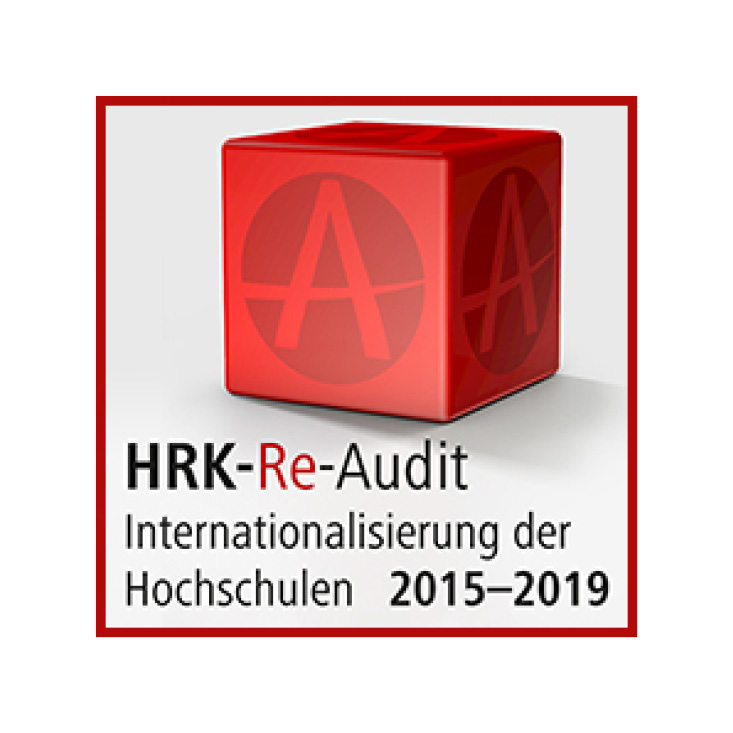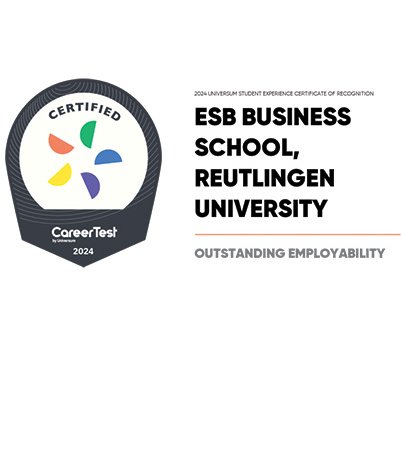Between inflation and the war in Ukraine
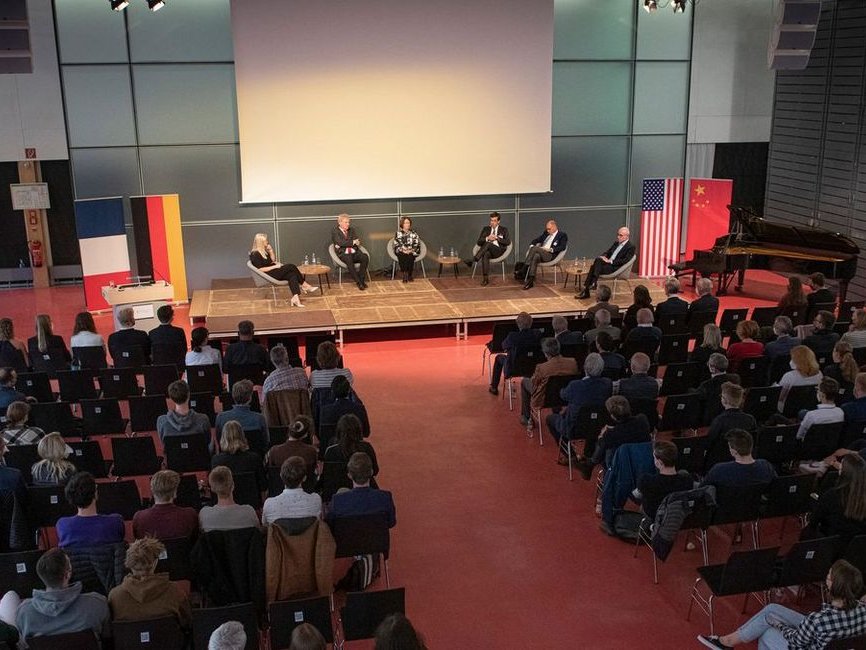
By Katrin Reil
"Action needed - The future of Europe will not wait!" The theme of the ESB Economic Forum 2022 ("Wirtschaftsforum 2022") was decided about a year ago. The European Year of Youth was to be honoured with a student-organized panel discussion at ESB Business School. However, Russia's attack on Ukraine has made the event at Reutlingen University more highly-charged. Yesterday, five top-ranking experts from science, politics and business had a lively discussion about the current geopolitical situation and the European Union’s role in it.
The assessment of the Russian attack on Ukraine was unanimous: "What is happening right now is an attack against democracy, against freedom and peace," said Evelyn Gebhardt, SPD politician and former Vice President of the European Parliament. The speakers were generally pleased with the overall unity of the European Union and its united action. For economist and author Dr. Daniel Stelter, however, this has a drop of bitterness. The current situation, he said, is leading to Europe not facing up to its real problems and failing to work through issues such as Brexit or a lack of competitiveness. "This could sow the seeds for much bigger problems for the EU in the future," Stelter warned.
At the ESB Economic Forum, the experts addressed numerous issues currently dominating the public debate. An oil or gas embargo against Russia was discussed just as energetically as a possible increase in the key interest rate by the European Central Bank to combat inflation, or the future relationship between Russia and China.
A central point of discussion was Europe's dependence in a globalized world. Would a process of deglobalization make sense in the current situation? Felix Kuhnert, automotive expert and partner at the consulting firm PricewaterhouseCoopers, took an ambivalent view. On the one hand, he said, the EU has benefited enormously from global business models. On the other hand: "Business cannot pull out of geopolitical conflicts. Globally active companies must stand up for their values."
Professor Dr. Hans-Peter Burghof, an expert in banking and financial management at the University of Hohenheim, nevertheless viewed a shift of more production to Europe critically: "We are too small to be able to do everything. But we need diversification so as not to create dependencies." For this, Burghof says, changes in competition law are necessary, among other things. "We have to make sure that a market economy also functions in the globalized world," he said. Professor Dr. Achim Wambach, President of ZEW Mannheim, agreed, while speaking of the importance of new and strengthened global partnerships with regions like South America and with countries like Canada. "One of the consequences of this war for me is that we rely on trade agreements," he said.
Despite all the challenges currently facing the European Union, the panel at the ESB Economic Forum also repeatedly pointed out the Union’s strength. "Europe has the ability to find very different solutions in a small space. We must not give up this diversity of solution concepts," said Professor Dr. Hans-Peter Burghof.
In the concluding round of questions, the audience in the well-filled auditorium had one concern above all – What concrete steps can we take to build the future of Europe? Evelyn Gebhardt found impressive words for this: "Get involved, participate, shape. As students, use programmes like ERASMUS+. There are many opportunities to get involved in Europe and gain experience."
About the ESB Economic Forum
The ESB Economic Forum 2022 was moderated by Dr. Julia Hagel. The event was organized for the 26th time by ESB Business School students. The members of this year's core team were Sofia Schwartz, Leon Kozak and Louis Vaillant (speaker acquisition), Camille Wambsganss and Samuel Krämer (marketing), and Laura Wachsmann and Pepe-Samuel Willer (logistics).
